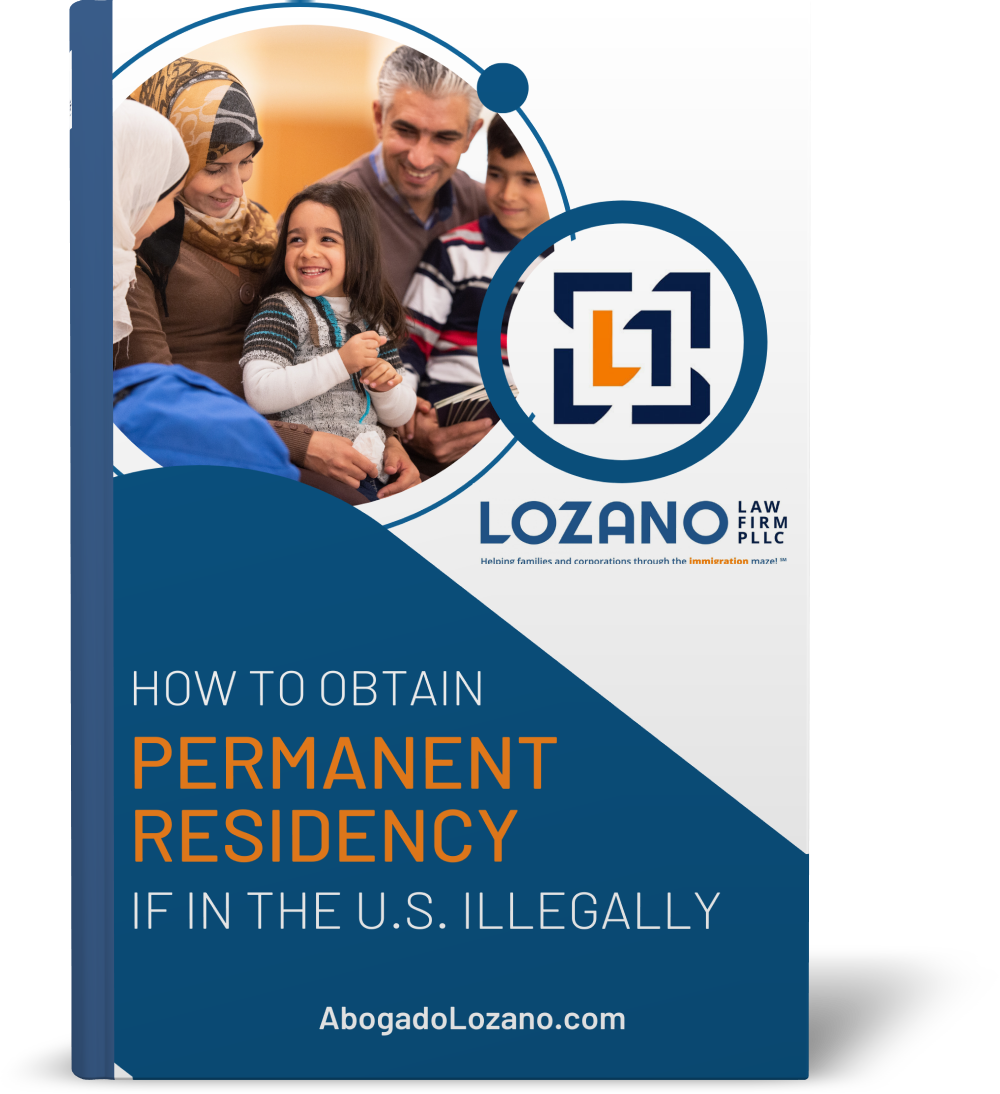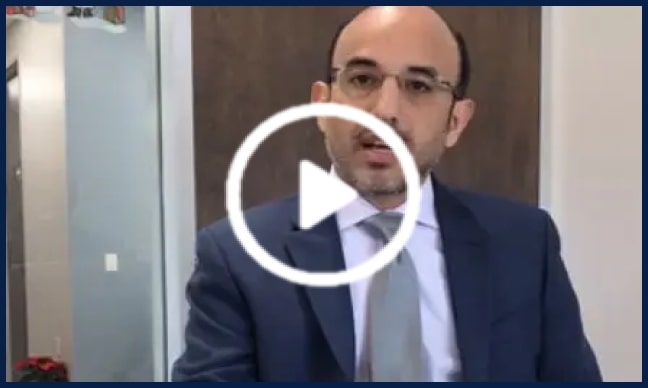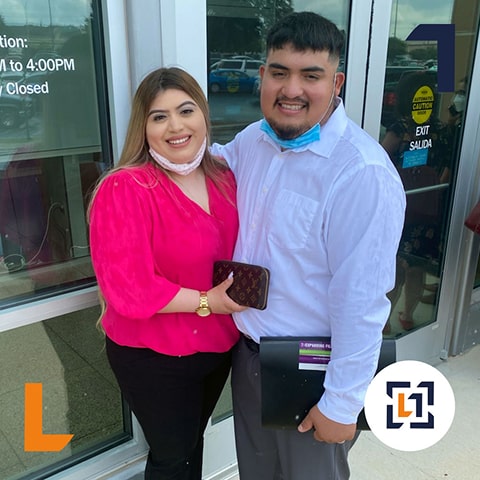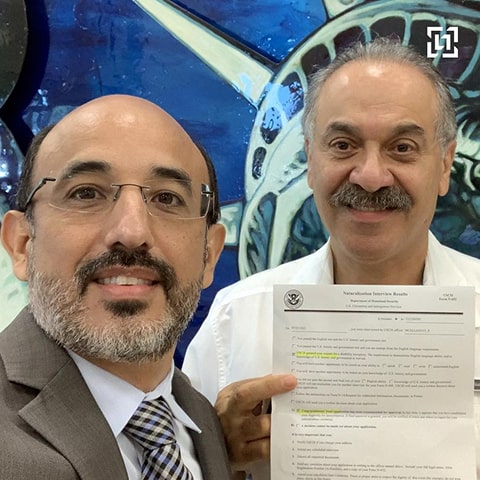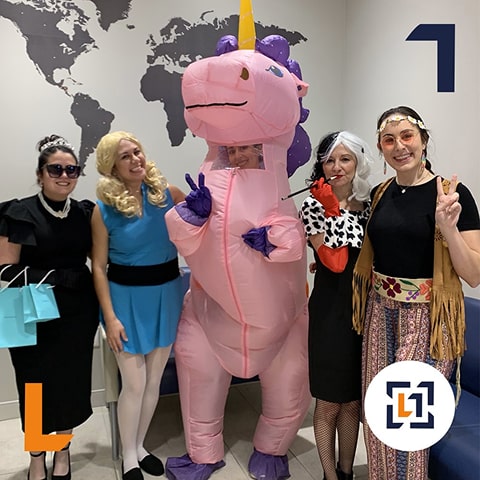Many aspire to become lawful permanent residents or Green Card holders, aiming to build their lives in the United States. One way to achieve this goal is by applying with the help of their U.S. Citizen or LPR parents. The process involves meticulous documentation and adherence to specific procedures to ensure a successful application for permanent resident status. In this article, learn the details of the application process, the various instances where people can apply for a Green Card through their parents, and shed light on the critical role of the National Visa Center (NVC).
Family-Based Green Card: A Brief Overview
The family-based Green Card process is a crucial pathway for eligible individuals to obtain permanent residence in the United States. It’s based on family connections with U.S. citizens or LPS. This approach recognizes the importance of reuniting families under the United States immigration policy.
In this category, parents can start the process for their children to become permanent residents. Similarly, children can help their parents achieve the same status. This process supports strong family bonds and contributes to the diverse fabric of American society.
Permanent Resident Card Application Through Parents
When securing lawful permanent residence status in the United States, the family-based Green Card process presents diverse avenues for individuals seeking to establish their lives in the land of opportunities. One of the most compelling aspects of this process lies in its possibilities for parents to initiate the journey toward permanent residency on behalf of their children. Find out the details of three ways to go about this process.
U.S. Citizen Parent Applying For Minor Children
For U.S. citizen parents, bringing their minor children (those under 21 years of age) to the United States carries profound significance. This avenue allows them to create a stable and nurturing environment for their children to grow in American society. The process begins by filing Form I-130, known as the Petition for Alien Relatives. Through this form, U.S. citizen parents formally request permission for their minor children to enter the country and pursue permanent resident status.
The journey commences with the U.S. citizen parent providing irrefutable evidence of their citizenship status. This typically involves presenting official documentation that confirms their U.S. citizenship, underscoring their eligibility to initiate this process. Additionally, establishing a bona fide relationship between the parent and child is pivotal. Birth certificates and other supporting documents serve as testaments to this familial bond.
One of the distinctive features of this category is the designation of minor children as “immediate relatives.” This designation translates into expediency in processing, setting it apart from other family-based categories that might entail longer waiting periods. This expedited processing acknowledges the importance of keeping families united and minimizing their time apart during the immigration process.
Lawful Permanent Resident Parent Applying For Children
The Green Card journey extends to lawful permanent residents who aspire to sponsor their unmarried children of any age. In this scenario, parents who hold permanent resident status extend the privilege to their children, facilitating their entry into the United States to establish a life of stability and opportunities.
While sponsorship is available, it’s important to recognize that this avenue can present longer waiting times. The family-based immigration system adheres to a preference system that allocates a limited number of Visas yearly. Consequently, this could result in a wait time before the child can proceed with their application process.
A pivotal moment in this journey arrives with the approval of the I-130 petition. The child’s priority date, established upon the petition’s approval, becomes a compass guiding them through the process. This date is instrumental in determining when the child can advance to the next phases of the application. While the waiting period might test one’s patience, it underscores the significance of a parent’s commitment to realizing their child’s dreams within the United States.
U.S. Citizen Parent Applying For Married Children
The family-based Green Card process embraces the complexities of familial relationships, even when they involve married children. U.S. citizens retain the privilege of petitioning for their married children, irrespective of age. However, this scenario finds its place within the Family Preference category, a classification that accommodates a limited number of Visas annually. This inevitably introduces a waiting period into the equation.
As with other instances, the process is set in motion by filing the I-130 petition. The married child’s priority date is crucial as it significantly influences the waiting period.
The National Visa Center’s Role
The NVC is a vital link between petitioners, beneficiaries, and U.S. embassies in the journey to permanent residency. It facilitates smooth communication, reviews documents meticulously, and coordinates the process effectively.
Communication & Document Review
Once an I-130 petition is approved, the NVC takes over, ensuring clear communication between petitioners and beneficiaries. It carefully checks forms and documents for accuracy, building a solid application foundation.
Guidance In Fees & Coordination
The NVC guides both parties through submitting fees and documents, aligning with immigration rules. It assigns case numbers for organized tracking, streamlining the process.
Immigrant Visa Process Coordination
As a coordinator, the National Visa Center organizes the intricate steps of the immigrant Visa application. It assists in crucial form completion, ensuring eligibility and smooth progress.
The NVC’s role is essential for a seamless journey, minimizing disruptions and ensuring a successful path to permanent residency.
Build A Strong Application
When pursuing a family-based Green Card, success hinges on assembling comprehensive supporting documents and completing a critical Affidavit of Support form. This meticulous phase ensures the application’s robustness and reflects eligibility for permanent residency.
Document The Journey
Supporting documents validate familial connections and personal history, acting as proof for the application. Birth and marriage certificates authenticate fundamental relationships, while translated documents ensure clear comprehension by authorities. Often unnoticed, police certificates highlight legal adherence, and passport-style photos visually represent applicants.
Financial Foundation: Affidavit Of Support (Form I-864)
At the application’s core, the Affidavit of Support signifies the petitioner’s dedication to support the beneficiary financially. This form echoes the U.S.’ commitment to preventing newcomers from relying on public resources. Signing this form implies the petitioner’s responsibility to ensure the beneficiary doesn’t burden the country.
The petitioner must show they meet specific income requirements to solidify this commitment. This goes beyond a benchmark; it promises a stable environment as the beneficiary begins their American journey. Scrutinizing income details demonstrates dedication to easing potential financial strain on the country’s resources.
Adjustment Of Status For Beneficiaries In The U.S.
In the complex process of getting a family-based Green Card, beneficiaries already in the United States have a unique opportunity.
The “Adjustment of Status” pathway allows eligible individuals to transition to permanent residency without consular processing. It’s a seamless opportunity from their current status.
Adjustment Of Status Process
When the beneficiary finds themselves within the United States, a window of possibility opens. They can submit Form I-485, the Application to Register Permanent Residence or Adjust Status. This form marks the start of a journey towards gaining lawful permanent residency.
When beneficiaries select this option, they use their current presence in the United States to make the immigration process smoother. This method offers distinct advantages, particularly eliminating the need for consular processing—a procedure involving coordination with U.S. embassies or consulates in the beneficiary’s home country. This adjustment process allows individuals to change their immigration status without leaving the country, thus fostering continuity and minimizing disruption to their lives.
Eligibility & Considerations
However, this pathway isn’t universally applicable. Eligibility depends on factors such as the beneficiary’s current immigration status, the nature of their relationship with the petitioner, and the completeness of the application. Fulfilling these prerequisites is necessary to apply for an adjustment of status.
Additionally, beneficiaries must adhere to the guidelines set forth by the USCIS and provide accurate and comprehensive information in their application. The meticulousness in the submission of supporting documents and the accuracy of the data presented amplifies the chances of a seamless transition.
How An Immigration Lawyer Helps
Lozano Law Firm offers valuable guidance and assistance in navigating the complexities of the immigration process. With a dedicated team, the firm provides reliable insights and support to individuals seeking permanent residency through family-based Green Cards. They utilize their understanding to aid clients in gathering necessary documents, completing vital forms, and complying with immigration regulations. Their approach is centered on clients, streamlining the process, and boosting the potential for a successful application.
Summary
In this article, you have learned that obtaining a permanent resident card through family connections highlights the importance of family unity in U.S. immigration. This journey exemplifies America’s commitment to strong families and diverse communities. Through determination and assistance, the permanent resident card becomes a gateway to a promising future in the United States.











